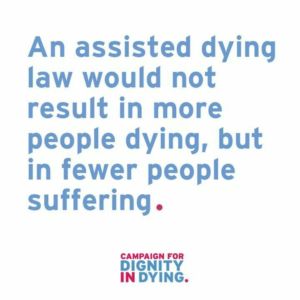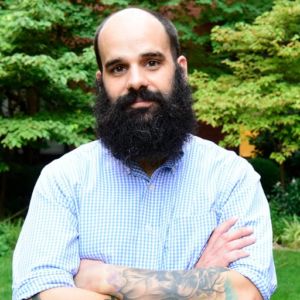When is Legalized Suicide Acceptable and When is it Not?
And now there are 11. Eleven jurisdictions in the United States have now legalized the act of suicide when it is the product of consultation between a terminally ill patient and a qualified medical person.
New Mexico’s legislature is the latest to approve such a bill called the End-of-Life Options Act. Other states – California, Colorado, Hawaii, Maine, Montana, New Jersey, Oregon, Vermont and Washington, as well as the District of Columbia – already have similar laws on the books.
Variously called the Right to Die, Death with Dignity or Assisted Suicide these laws allow an incurably sick resident of the state who has fewer than six months to live, is over the age of 18 and found to be of sound mind to self-administer a fatal dose of prescription medicine to end their life. In Montana, this is allowed only after a court ruling.
There are no federal laws on patient assisted suicide (PAS) but 36 states outlaw it. Four states remain non-committal.

Whether we are watching a new legalized suicide trend with the recent action in New Mexico isn’t known. But for sure, it is a controversial issue with a multitude of unanswerable questions.
Surely there are those terminally ill patients who have logically decided it is their time to depart the earth. But what about the profoundly depressed or in-pain patients who see no way out save for the law that will help them commit suicide? Shouldn’t society be offering them better life solutions first ?
One only need look north to see how this kind of law can morph into the almost inconceivable.
In Canada, where assisted suicide was made legal in 2016, legislators recently voted to amend their Medical Assistance in Dying Act (MAiD) to allow disabled people – both physically and mentally impaired (excluding advanced Alzheimer’s patients) – to choose death. The disabled need not be near imminent death under Canadian law they simply must assert that they have a “grievous and irremediable medical condition” and believe they will die in “the foreseeable future.”

Aren’t we all going to die in the foreseeable future? And what group of people could conceivably be included next under this fatal umbrella? Prisoners with long sentences or only those on death row? Do we use it as a bargaining chip with the worst criminals like hard-core child sexual predators offering them castration or PAS? Where does legalization of suicide stop?
Religious organizations, ethics scholars and disabled advocacy groups have deep concerns about Canada’s move. They are worried about the ramifications and believe the infirm could become targets of mistreatment by caretakers and/or coerced into asking for suicide help. One Canadian journalist has asked the question, “Is Canada careening off a moral cliff?”
Harold Braswell, a professor of health care ethics at Saint Louis University calls the Canadian move to widen the pool of those eligible to ask for PAS as “suicide promoting.” He seeks to educate society about the real life consequences.
“Theology can remind secular people like myself that it’s entirely possible to talk about disabled people without floating the idea of killing them or mentioning that, if I were to become one, I’d want to end my own life,” Braswell said.

PAS laws must certainly be a Godsend for those of sound mind who are truly ready to go. And the lessons we’ve learned from Oregon – where this nation’s first assisted suicide law was passed more than 20 years ago – it’s clear the law is publicly debated much more than it is actually used.
Data shows hundreds more deadly prescriptions are written than are acted upon. Between 1998, when the first Oregon resident took the legalized way out, and the end of last year a total of 2,518 terminally ill Oregonians got the prescription. 1,657 actually ingested the medication and died, or 66% of those who asked for help. It should be noted the number of Oregon PAS deaths goes up every year.
Who has the right to stand in the way of someone who is fatally ill and truly wants to hasten their own death? If you believe in individual rights the answer is no one. But including the disabled and mentally ill surely cannot be the most ethical way to go.

Old Dog writes:
I witnessed my wife die of cancer. With proper medical and spiritual counseling, an adult should have the option. My concern is it would be abused by the organ harvesting industry.
Simons writes:
If someone wants to die, let them, it is/should not be governments choice when or how u die!!!
lmer615 writes:
Essentially, when your doctor tells you it’s time to call Hospice, you are pretty much scheduled to die. They make you comfortable with pain meds. Keep you clean, well cared after. And they pump you full of morphine until your body shuts down. And that kills you. Not your disease. That’s the same as assisted suicide in my book. It just take a little longer. PS. I’d rather commit suicide than live in Oregon.
gbmullen56 writes:
Unfortunately, it is easy to be critical of assisted suicide when you are healthy. If you’re someone with a horrible painful debilitating chronic illness like multiple sclerosis, living (or more like existing) in a nursing home at age 45, you may have a different opinion about quality of life and the desire to continue with it. An occasional decent day surrounded by dozens and dozens of horrible days. That may be enough good days for some people. But for others it may not. Because of that it would be the right thing to do to allow a chronically ill human the right to escape that torture. Our pets, our dogs and cats, are treated with more respect and compassion when they are chronically ill and in pain. Dying a slow death. It shouldn’t be difficult to allow the right to die to truly be an actual right. I wish you could ask my mother-in-law her opinion who painfully suffered for 20 years. I know what she would tell you.
abareou812 writes:
If people who lived in chronic pain, like me, who are denied the pain relief they need they probably would want to end their lives. This travesty has been caused by the DEA and CDC.
Aqualung 73 replies to abareou812:
More like the FDA, AMA, Big Pharma and yes the CDC. DEA was a causal effect of the war on drugs and some drugs are a HUGE problem. Opioids are a problem and highly addictive. But I get your point
shoebear writes:
Suffering is not the ultimate evil, but our culture views it as such. This distorts our moral thinking on right-to-die questions and a number of others.
Ron Neff writes:
I have asked my nurse daughter that if I ever get hurt and turn into a veggie or something close to a veggie, that she put a big dose of pain meds within my reach. I cannot think of anything worse than continuing to survive in that sort of state.
However, it would have been nice if Ms. Diamond would have touched on what has happened in Europe with their laws. Started out as assisted suicide but it has morphed into law that allows the docs or relatives of the affected person to provide the ok to end the life—-even if the patient says they are happy and want to continue to live in their current state. I think people should be able to make the decision for themselves but…..somebody else should not be able to sign off on it unless that person is terminal and is not lucid and not able to make any decision for themselves.
Similar to ——do not resuscitate orders or the ability of relatives to make the decision not to go to all means to save the life of a 95 year old person in a semi vegetative state.
marymeyers writes:
Yes, let people kill themselves under the guise of compassion. It is not compassionate to permit people to think that their lives are not always worth living, even under the most dire of circumstances, even when they want to die. If that was true, then what good are suicide prevention programs? . Even more important, God decides life and death, not us.
The Original Dudette writes:
Kill helpless children and kill hopeless adults then do we have a better society or a society that doesn’t care about the life of a human made in the image of God? How long will God allow man to shake his fist in rebellion against Him? Thou shalt not kill.
GrandKat writes:
There’s a difference between physician assisted suicide for the terminally ill and suicide on demand. And I support it. Unfortunately, it would turn out like the killing of babies. An immoral industry which this, by the way should never have been legalized. But this can only be understood by those of us who know cancer victims who ate a bullet when it became intolerable/
S Spy writes:
In a society that doesn’t value life, that aborts a fetus at a whim, why wouldn’t assisted suicide be acceptable. We are a nation in a crisis of the truth.
porchkitty writes:
Just like abortion, this too, will be abused for selfish interests.
David Marks writes:
Diane, so many of us have been with suffering loved ones to the very end. I need no reassurances. My answer is yes, with the opinions of two physicians to support the terminal diagnosis, the primary loved one, and most significantly, the suffering patient.
DD replies to Mark:
So you agree with the Canadian steps to allow physically AND mentally handicapped people to choose medically assisted suicide?
David replies to DD:
Diane, I do. I’ve seen such horror, and I see no reason to deny an individual choice, even when there seem to be barriers from others. I believe in personal choice.
Andy Pal writes:
I believe that the Death With Dignity movement for those who are terminally ill should have a respected place in our society.
Dr. Robi Ludwig writes:
So torn on this. What if they are depressed and their depression can be treated. This is a very tough question.
DD replies to Dr. Robi:
I agree. Maybe we should do a better job helping them BEFORE they become suicidal.
jody48 writes:
The word is not suicide, but euthanasia.
Julie Burnett writes:
We are more humane to our animals than we are allowed to be for those we love.
This is a very complicated and controversial subject. Even the states that have approved it, there are many requirements to have the right to choose. Those who advocate take offense to using “suicide” but rather choose end of life. If researched, as I have, there are other alternatives as well. Ordering the lethal cocktail on line but a slippery legal slope to navigate administering.
Thank you for reinforcing what I already know, that I’ll be sharing in my book. Each situation is unique and there is no cookie cutter answer. There’s an old movie, I think it is called The Doctor with William Hurt, Renae Zellweger and Meryl Street that is thought provoking about this very subject. Ty for sharing.
There are many things worse than death.
I spent 8 years watching my dad (diagnosed at age 52) die of Lewy Bodies. Spent 8 years listening to him wish to end his life. Spent 8 years watching my dad go from an intelligent and compassionate human being to a shell. He was diagnosed when I was 20, and I cherish every memory I had with him before he was diagnosed. He was the greatest dad, and I miss him so much. He deserved to die with dignity and on his own terms.
I will always support physician-assisted suicide.
William Hobbs writes:
Abortion is legal and is never chosen by the victim. Why are we worrying about someone who has had a life deciding it is time to quit?
Noozhawk Letter to the Editor:
To the Editor:
Diane Diamond’s (sic) comparison of euthanasia laws in other nations like Canada do not compare with the strict U.S. medical aide in dying laws like California, and several other states.
The core requirements and safeguards for medical aid in dying have been unchanged since Oregon voters approved the first law in 1994: it states the person must have a terminal prognosis and be mentally competent to make their own medical decisions.
The California End of Life Options Act specifies “ A person shall not be considered a “qualified individual”…solely based on age or disability.”
If a mental health assessment is requested by one of the two acting physicians, no aide -in-dying drugs will be prescribed until the specialist determines the individual has the capacity to make the decision and is not suffering from impaired judgement due to a mental disorder.
The law in California is due to expire at the end of 2025 and a Kaiser Permanente Southern California study showed that one-third of terminally ill people have been unable to complete the time-consuming, 13 step process to access the law. Thankfully, the Senate Public Health Committee supported legislation SB 380,which would remove regulatory roadblocks to access the law and make it permanent.
AS a hospice nurse I have witnessed unnecessary suffering when people were unable to access the law in a timely manner.
Deborah Molnar
Registered Nurse, Retired Hospice Nurse
Santa Barbara, CA
Baruch Weiss writes:
Another question to consider is how such laws will affect religious doctors who view such practices as murder. If such laws are passed they may require physicians to comply with such requests at the risk of otherwise losing their licenses.
Ed James writes:
Moving toward a “kinder and gentler” form of state sanctioned execution?
Monterey Jack writes:
So true. Some disabled people are heavily dependent on their care givers, who may be emotionally drained and exasperated from the exertion, time and expense of care-giving. Such care givers may come to believe PAS would be an act of mercy to the disabled as well as to themselves. The dependent disabled could be more easily convinced to “do the best thing” than persons not in their situation, especially while feeling unwanted. PAS might be a sincere accommodation in most cases, but in other cases cynical caregivers will want to emotionally manipulate their disabled dependents simply for their own convenience. And PAS of disabled elderly would expedite inheritance in many cases.
patriotgirl1 writes:
−
All suffering is a part of life. Truly. I will let nature/God end my natural life on this planet. If one does not go through their soul’s trials, you’ll probably have to do it all over again. That’s simply my belief.